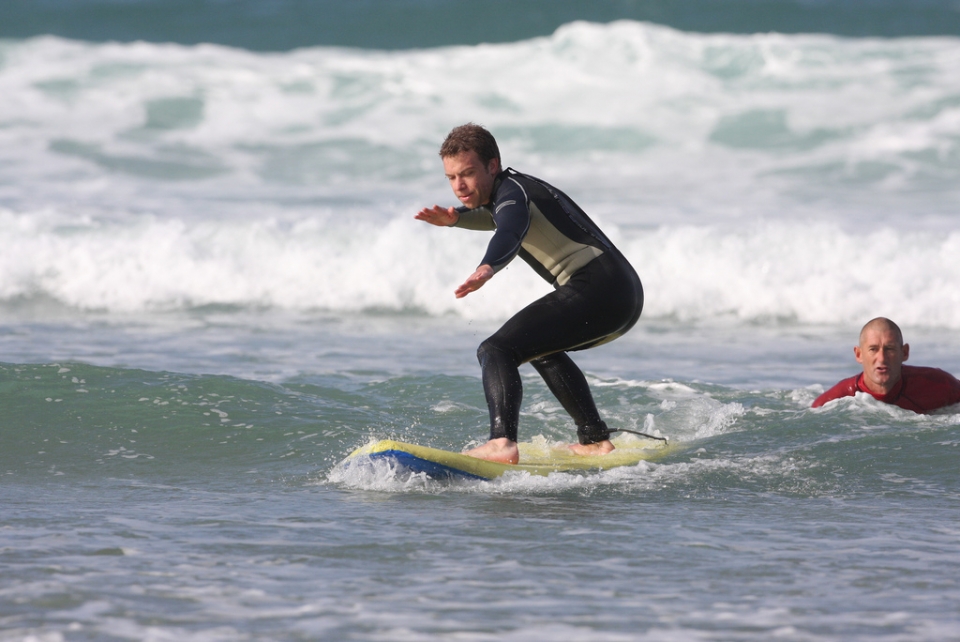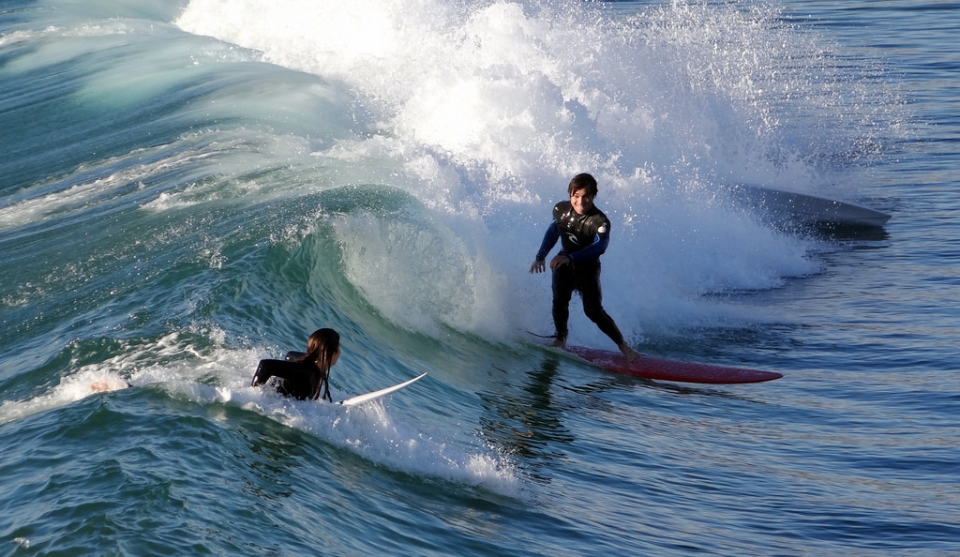
It’s undoubtedly a fantastic idea because you already know how it feels to ride the waves, but remember to use your common sense and follow a few key rules. Do you know them?
If you're unsure which beach to head to, check out our list of the best beaches in the country for surfing.
10 Basic Rules for Surfing
1. What’s Your Skill Level?
First, be honest with yourself and assess whether you’re skilled enough to paddle out to the lineup or if you should stay closer to shore practising on whitewater. Don’t try to run before you can walk.

This isn’t just about you—while it’s ultimately your call, you could cause an accident by colliding with another surfer riding a wave.
2. Wait Your Turn
Once you reach the lineup, be a good sport and don’t drop in on someone else’s wave. We all want to catch waves, but you must wait your turn. That’s how the game works!

Who has priority? The surfer closest to where the wave starts breaking. Whether it’s a left or right, everyone should yield to the rider with the longest potential ride.
3. Respect the Locals
It’s said that those who live near the surf spot have priority—it’s their home break. The best approach? Be friendly and respectful: you’ll build goodwill and be accepted as one of them. It’s easy... and they don’t bite!

4. Don’t Get in the Way
It’s easy to lose focus, linger near the shore, or wait for a set—only to become an obstacle for another surfer riding a wave.

This can be dangerous. If they don’t see you, you could collide, and boards can cause serious injury (or even snap). Be careful!
5. Communicate with Others
If everyone knows each other’s intentions, misunderstandings are less likely. If you take a peak that breaks both ways, shout your direction—e.g., "Going left!"—so others can take the opposite.

6. Always Mind Your Board
Secure your leash properly before surfing—a loose board is a hazard, both to you (leaving you unprotected) and others (who could get hit).

7. Help and Be Helped
Unexpected situations arise in the water, so surfers must look out for each other: share good waves, and lend aid when needed.

It’s also great to swap tips and tricks—ask questions and share knowledge. Isn’t that better?
8. Never Surf Alone
Always bring a mate, even just one. You’ll have backup if things go wrong—plus, who better to share the stoke with?

9. Warm Up and Stretch
It’s easy to skip warming up in your excitement—don’t! Focus on joints, core, arms, and legs to avoid strains. Plus, warming up lets you scout the waves, currents, and sets.

And remember: no matter how tired you are, stretching post-session prevents soreness—especially if you plan to surf again soon.
10. Have Fun
This might be the easiest rule of all. A positive attitude avoids disputes and bad vibes in the water. After all, everyone’s there for the same reason.

What about you? Had any issues in the water? Want to suggest another rule?











